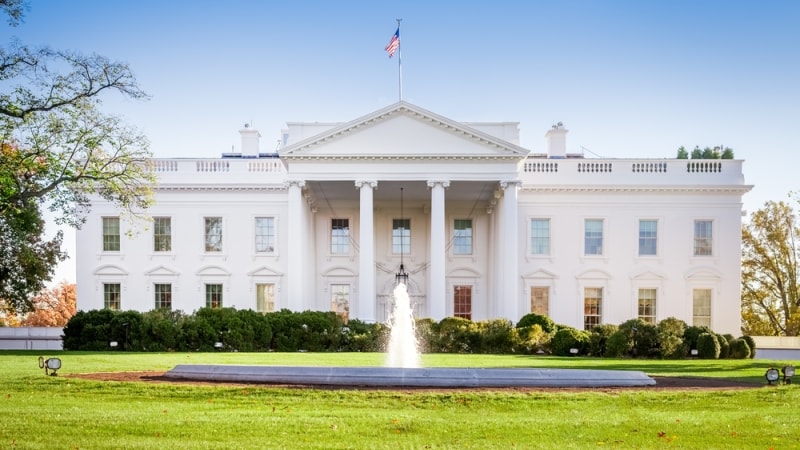
Following Monday’s CMS Blue Button 2.0 Developer Conference at the White House, Microsoft, Amazon, Google, IBM, Oracle, and Salesforce committed “to removing barriers for the adoption of technologies for healthcare interoperability, particularly those that are enabled through the cloud and AI.”
“The common goal of this program is to deliver better patient care, higher user satisfaction, and lower costs across the entire health ecosystem,” explained Gregory Moore, VP of healthcare, Google Cloud, in a statement.
On Monday, the White House hosted the CMS Blue Button 2.0 Developer Conference which is intended to foster partnerships between the Federal government and public sector to improve innovation in health IT. Leaders from the White House’s Office of American Innovation and the Centers for Medicare and Medicaid Services (CMS) – which is part of the Department of Health and Human Services – were on hand to discuss the importance of private and public sector partnership and the need for improved technology in the healthcare sector.
“We recognize the power of the private sector to drive innovation and to solve difficult problems,” said Chris Liddell, White House deputy chief of staff for policy coordination. “Initiatives such as Blue Button 2.0 represent a commitment to reimagined government as a facilitator and supporter of private sector innovation. By pairing government’s data and scale with the ideas and energy of the private sector, that’s the best way in our view to solve some of our nation’s toughest challenges and improve the lives of the American people.”
The tech giants released their pledge shortly after the conference concluded.
“We at Microsoft are taking a collaborative approach to building open tools that will help the healthcare community, including cloud-hosted APIs and services for AI and machine learning,” Josh Mandel, chief architect, Microsoft Healthcare, said in a statement. “Microsoft understands that true interoperability in healthcare requires end-to-end solutions, rather than independent pieces, which may not work together.”
The pledge includes what the tech giants call “foundational assumptions:”
- “The frictionless exchange of healthcare data, with appropriate permissions and controls, will lead to better patient care, higher user satisfaction, and lower costs across the entire health ecosystem.
- Healthcare data interoperability, to be successful, must account for the needs of all global stakeholders, empowering patients, healthcare providers, payers, app developers, device and pharmaceuticals manufacturers, employers, researchers, citizen scientists, and many others who will develop, test, refine, and scale the deployment of new tools and services.
- Open standards, open specifications, and open source tools are essential to facilitate frictionless data exchange. This requires a variety of technical strategies and ongoing collaboration for the industry to converge and embrace emerging standards for healthcare data interoperability, such as HL7 [Health Level Seven International] FHIR [Fast Healthcare Interoperability Resources] and the Argonaut Project.
- We understand that achieving frictionless health data exchange is an ongoing process, and we commit to actively engaging among open source and open standards communities for the development of healthcare standards, and conformity assessment to foster agility to account for the accelerated pace of innovation.”
“Transforming healthcare means working together with organizations across the ecosystem,” Mandel said. He said the “joint interoperability statement reflects the feedback from our healthcare customers and partners, and together we will lay a technical foundation to support value-based care. We expect that the assumptions from our joint statement will continue to evolve and be refined based on this open dialog with the industry.”
